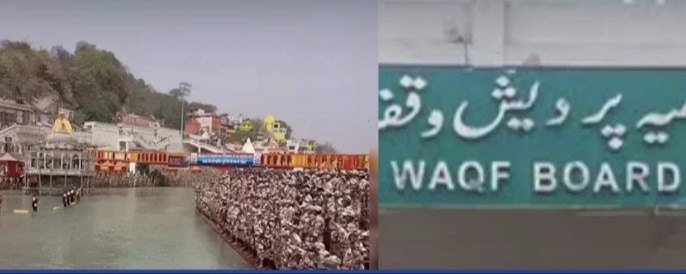– Ayesha Sultana
In recent times, a wave of misinformation has been spread regarding the Waqf Board and its role in India. A pamphlet, widely circulated without any verifiable source, falsely claims that the Waqf Board has “encroached” upon Hindu religious sites and private lands. Such narratives are not just misleading but are designed to create fear and division among communities. It is crucial to address these allegations with facts and historical context.
What is the Waqf Board?
The Waqf Board is a statutory body that manages waqf properties—land or assets donated by Muslims for religious or charitable purposes. These properties are meant to benefit the community, including mosques, dargahs, orphanages, and educational institutions. The existence of waqf is a centuries-old tradition in India, dating back to pre-colonial times. The British codified waqf properties under the Waqf Act of 1913, and after independence, the Indian government enacted the Waqf Act of 1954, later amended in 1995, to regulate and manage these properties.
Debunking the Propaganda
The claims that the Waqf Board is seizing Hindu religious sites are based on deliberate distortions. Here are some key points to consider:
1. Legal Recognition of Waqf Properties
Waqf properties are legally registered under the Waqf Act. These lands were either donated by individuals or recognized as waqf under historical agreements. The board does not have the power to arbitrarily claim any land—it must follow a legal process that includes verification by government authorities.
2. No Encroachment on Hindu Temples
The claim that temples are being taken over is baseless. In cases where land is identified as waqf, it usually pertains to historical endowments made by Muslim rulers or individuals. Any disputes go through judicial review, and Hindu religious sites remain protected under the law.
3. The Misrepresentation of Farmers’ Lands
The pamphlet alleges that 500 farmers lost their lands due to Waqf Board claims. However, the reality is that many waqf properties were leased to private individuals, including farmers, over decades. When such lands revert to waqf control after lease expiration, it does not constitute “land grabbing” but is rather a legal restoration of community-owned assets.
4. Kumbh Mela and Waqf Claims: A False Alarm
The suggestion that the Waqf Board is targeting land used for the Kumbh Mela is a clear attempt to stoke religious tensions. The Kumbh Mela is held on government-owned land, not on waqf property. This accusation is part of a wider misinformation campaign to portray Muslims as aggressors.
5. Political Motives Behind the Misinformation
The false allegations against the Waqf Board coincide with efforts to communalize public discourse ahead of elections. By falsely presenting Muslims as “land grabbers,” certain groups seek to divert attention from real issues such as economic distress, unemployment, and governance failures.
The Real Threat: Marginalization of Muslims
Instead of focusing on actual illegal encroachments by land mafias and powerful corporations, the propaganda targets a legal and religious institution that serves the Muslim community. This fits into a larger pattern of attempts to erode the rights of minorities by questioning their legitimate institutions.
It is essential for responsible citizens to see through such divisive tactics and ensure that communal harmony is maintained. The Waqf Board is a legally sanctioned entity that exists to safeguard community property—its role should not be distorted to spread fear and hatred.




